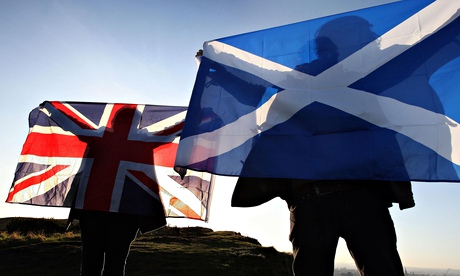What did the Scottish Referendum achieve?
By Dan Hasan
Being home to only a handful of Scots and a minority of Brits, it seemed UCR was largely unshaken by the events of the referendum on Thursday 18th September and it is unlikely that the date will go down in history as far as most UCR students are concerned.
On the other hand, the referendum is a landmark case of exercising democratic power for those involved, but it did not go as planned for the separatists. With a turnout of over 4.2 million, only 45% of the total voters wanted independence from the United Kingdom, disappointing Alex Salmond of the SNP (Scottish National Party). The leader, who is still pledging for independence on the grounds that “Yes”-voters were ‘tricked’, announced his planned resignation in November after the results were out.
Since the start of the 18th century Scotland has been part of the United Kingdom, basing its political power in London by the 1707 Act of Union until 1999, when the Scottish Parliament was formally established. Throughout the 18th century, Scottish economy and sociopolitical policy was heavily controlled by English government and shared its fiscal problems. Unionisation was not hugely popular among the Scottish public 300 years ago and a lot of the animosity remains in one form or another. However, it is clear that the UK government were in favour of staying in a union, with emphasis on the economic and security benefits outlined in booklets and publications distributed by the British Government; and leaving Prime Minister David Cameron “delighted”, while on the other hand the reaction from the Scottish government was one of disappointed acceptance. The aforementioned leader of the SNP scrutinized the reliance of Scotland on the UK and stated that the healthcare services, financial prospects, and autonomy of the Scottish people were at risk by a continued union.
Unusually for UK elections, the vote was open to those over the age of 16 rather than the standard 18, drawing in a demonstrably wider voter demographics. Considering the impressive turnout of 86% (2.5 times higher than the turnout for the previous UK governmental elections) and slight “win”-margin, there is unanimous acknowledgment that the coin could have landed either way, leaving us to imagine the consequences of the hypothetical independence. Indeed, shortly after the results were announced, Catalonian President Artur Mas signed a decree calling for a similar referendum in Catalan on 9th November, despite Spanish assurance that the move is illegal. Mas assured, “We want to vote. We stand for democracy, dialogue and peace. We believe that political issues must be resolved by negotiation and civilised attitudes.” Was this move inspired by the tenacious recent events in Scotland, and will the end of the year see new countries emerging from old borders?
While we consider how our nationality and democratic rights shape the state of the West, the Middle East exemplifies struggles for independence in the form of progressing sectarianism, religious fundamentalism, and militancy. The conflicts for power and independence stretching across the deserts of Syria, Iraq, Afghanistan, Palestine and Israel take harrowing and ugly forms in contrast to the ordered, democratic elections that are commonplace in our lives, but they are built on the same arguments and concepts of individual freedom, societal cognition, autonomy, self-expression, and security which we collectively hold as fundamental to civilization. When pushed to extreme conditions by warfare, totalitarianism, or exploitation, people will defend their autonomy more aggressively.
In the end the referendum may have fallen short of granting Scottish independence for now, but the exercise of democratic power of the people to shape the political future. What unites the disappointed Scots, the zealous Catalonians and the desperate Arabs is not necessarily the feeling of obligation to state and kin, but the desire to enjoy the freedom, security and ability of expression outside of the agency of an external authority.
Dan Hasan, class of 2016, is a Science major, from London (The United Kingdom)

